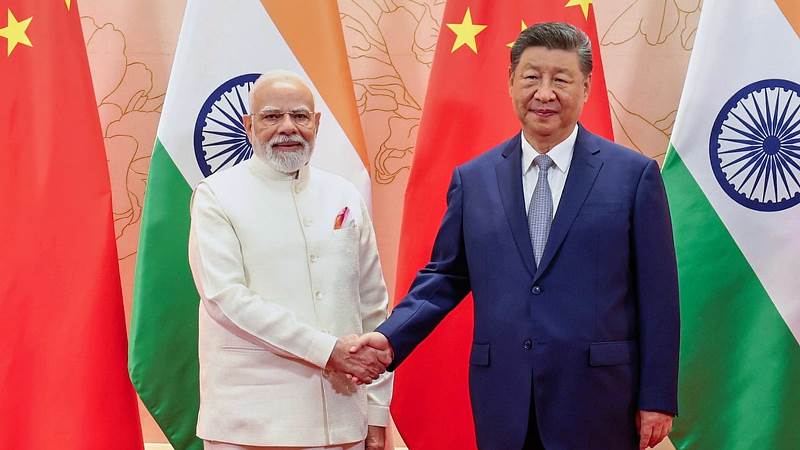Prime Minister Narendra Modi and Chinese President Xi Jinping met on the sidelines of the Shanghai Cooperation Organisation summit in Tianjin to discuss strengthening ties between the two Asian giants. Modi highlighted India’s commitment to improving relations with China, focusing on mutual respect, trust, and sensitivities, particularly in the context of their disputed Himalayan border. The leaders agreed that India and China are development partners rather than rivals, seeking to foster peace and stability for the 2.8 billion people of the two nations.
Their meeting comes at a time of heightened global tariff uncertainty, notably after U.S. President Donald Trump imposed a 50% tariff on Indian goods, partly due to India’s purchase of Russian oil. Analysts view the summit as an opportunity for both leaders to align against external pressures and reshape their economic and geopolitical strategies. Modi emphasized reducing India’s significant bilateral trade deficit with China as a crucial step in their evolving commercial relationship.
The 3,800 km shared border between India and China has long been a source of tension, culminating in a deadly clash in 2020 that led to a militarized standoff. However, Modi and Xi noted positive developments in border management, with the situation moving towards normalization following an October patrolling agreement. Indian Foreign Secretary Vikram Misri confirmed the border is stabilizing, underpinning hopes for continued peace between the neighbors.
President Xi stressed that the border dispute should not define the entire relationship and underscored opportunities for bilateral cooperation beyond territorial issues. He affirmed that China and India are more valuable as partners rather than threats, advocating for focusing on long-term, stable, and comprehensive ties. This diplomatic tone highlights a cautious but significant thaw in relations amid the complex global landscape.














